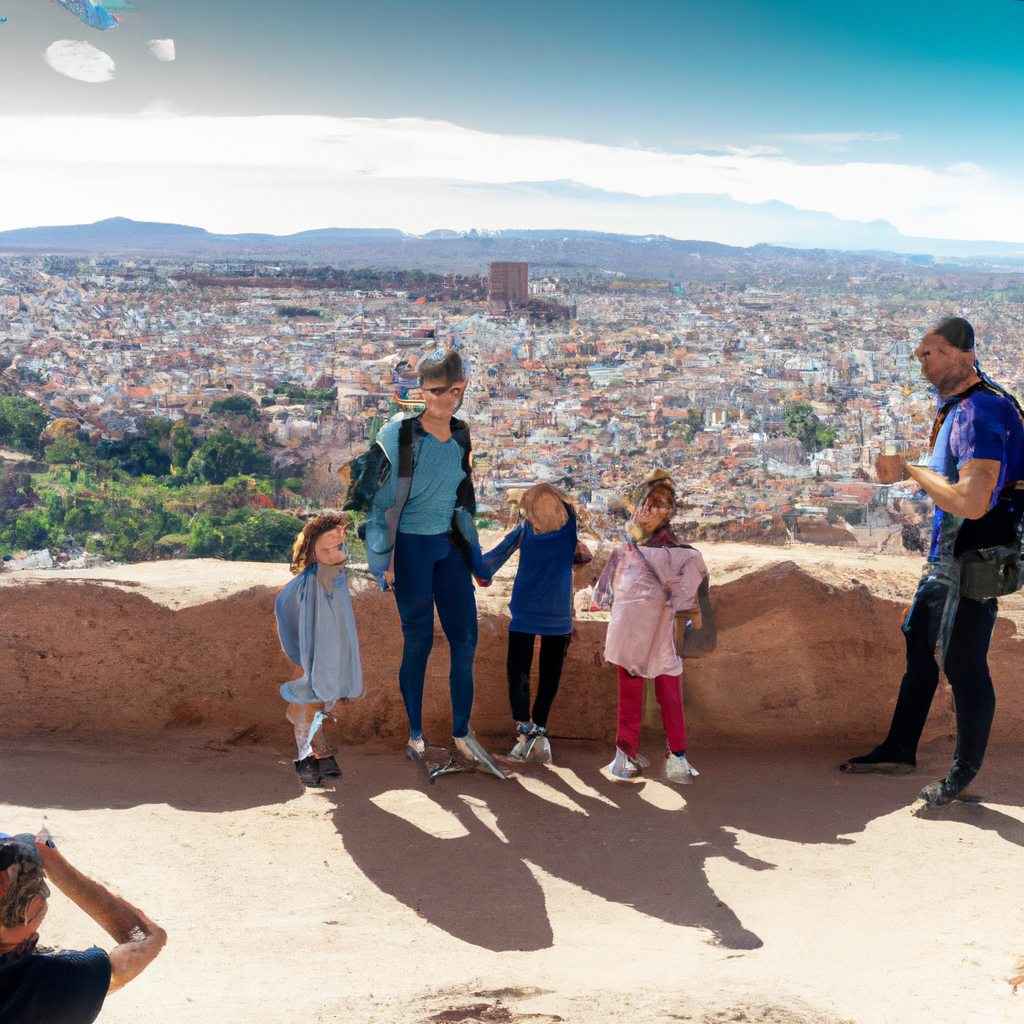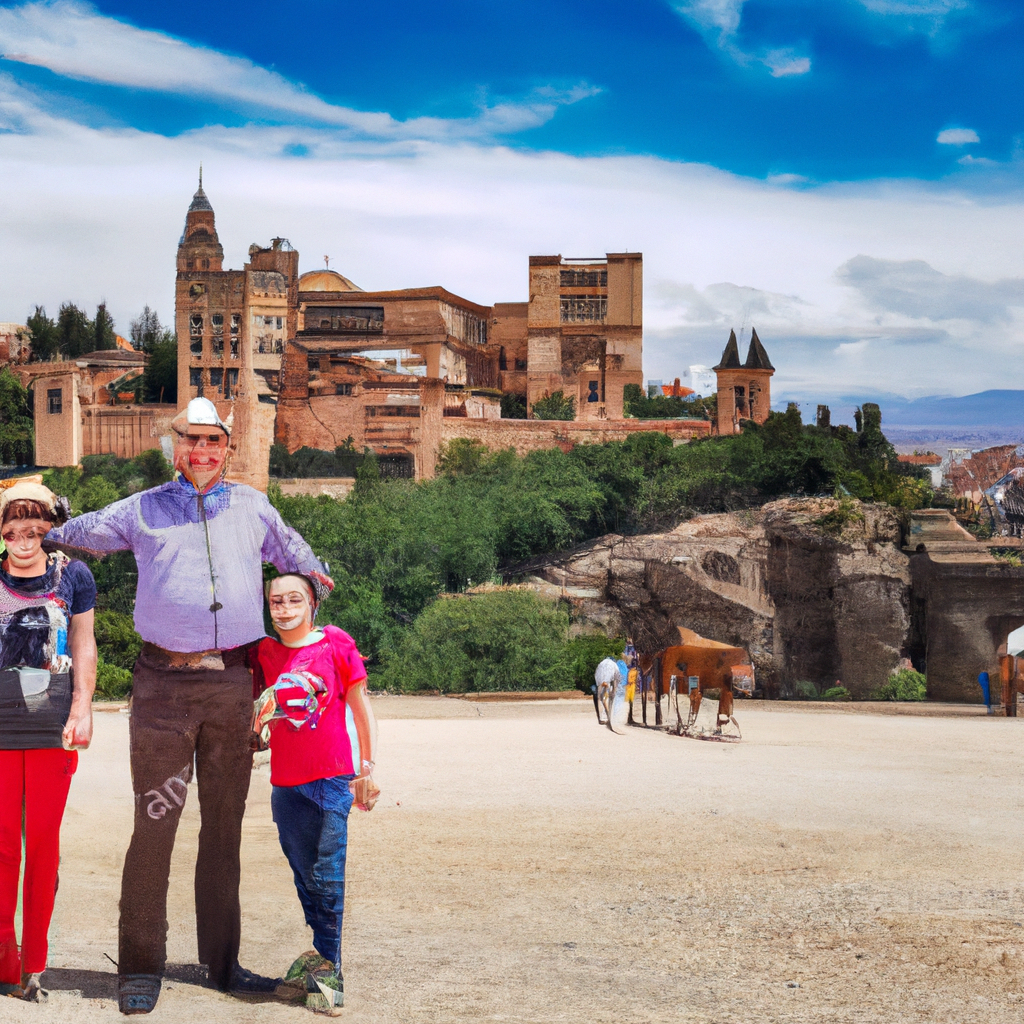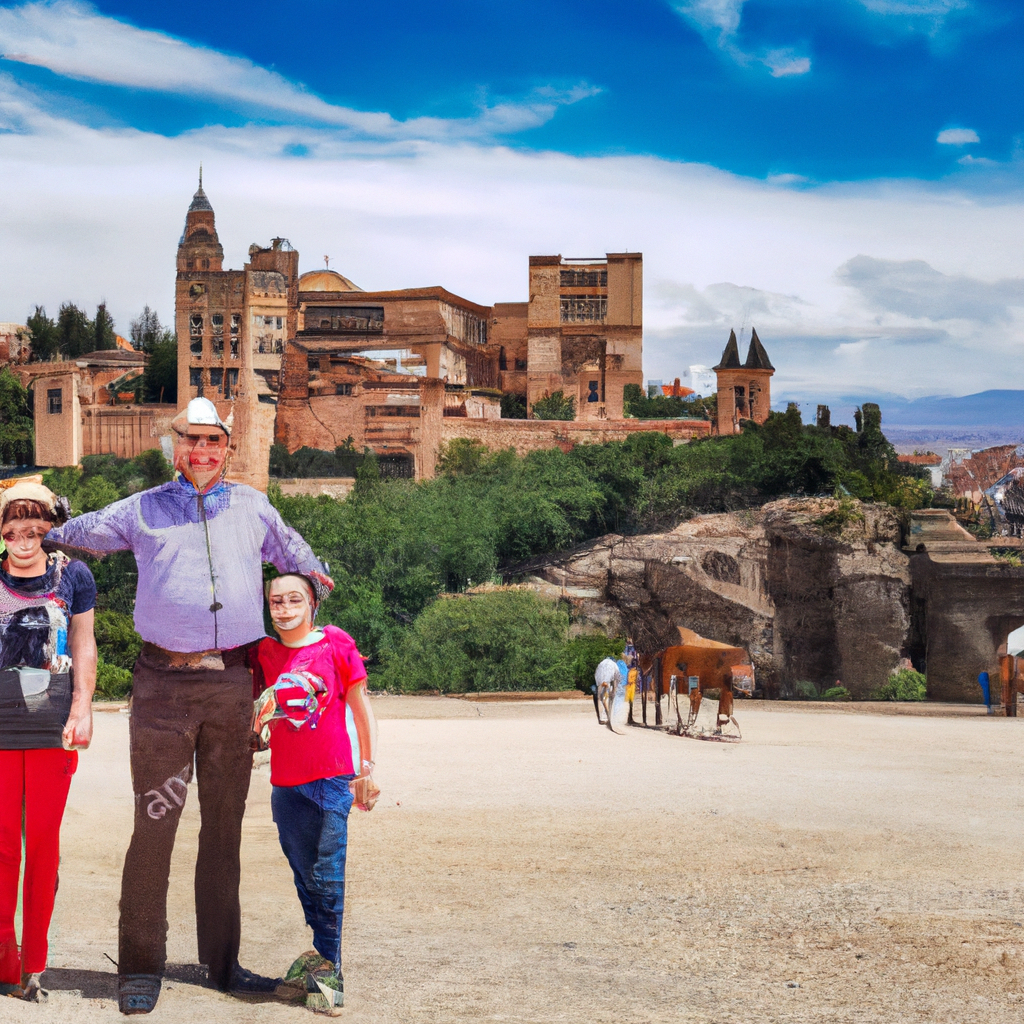Traveling with your family can be an exciting adventure, but it also comes with its fair share of challenges, especially when it comes to managing cultural differences. From language barriers to unfamiliar customs, navigating new cultures can sometimes lead to misunderstandings and friction. However, with a friendly and open-minded approach, you can ensure a harmonious and enriching travel experience for everyone involved. In this article, we will explore some practical tips and strategies to help you effectively manage cultural differences when traveling with your family. So pack your bags, embrace diversity, and get ready for an unforgettable journey of understanding and discovery.
Planning and Preparation
Researching the Destination
When it comes to managing cultural differences while traveling with your family, it all starts with proper planning and preparation. Take the time to thoroughly research your destination before you embark on your journey. Learn about the country’s customs, traditions, and cultural practices. By understanding the unique aspects of the culture, you can better prepare yourself and your family for the journey ahead. This knowledge will help you navigate the local customs and etiquette, making your trip more enjoyable and respectful.
Understanding Local Customs and Etiquette
Every destination has its own set of customs and etiquette, and it’s essential to learn and respect them. Before you travel, familiarize yourself with the local customs, such as greetings, dining etiquette, and social norms. For example, in some cultures, it is customary to remove your shoes before entering someone’s home. By understanding and adhering to these customs, you show respect for the local culture and make a positive impression.
Learning Basic Phrases
Communicating with the locals can often be a challenging task, especially if there is a language barrier. Learning a few basic phrases in the local language can go a long way in bridging that gap. Simple greetings like “hello,” “thank you,” and “excuse me” can make a big difference and show that you are making an effort to connect with the locals. Additionally, carrying a pocket-sized phrasebook or using language translation apps can be helpful tools during your travels.
Communication and Language
Overcoming Language Barriers
Language barriers can often pose a significant challenge when traveling to different cultures. While it may not be feasible to become fluent in every language, there are several ways to overcome these barriers. One approach is to learn some basic phrases and key vocabulary words in the local language. Additionally, using translation apps or keeping a pocket-sized translator can be invaluable tools for effective communication. Remember to speak slowly and clearly, using gestures or visual aids if necessary, to ensure better understanding.
Using Non-Verbal Communication
Non-verbal communication can play a vital role in bridging cultural gaps. Some gestures or body language that may be appropriate in one culture could be considered offensive or inappropriate in another. Be mindful of your own body language and observe how locals interact to adapt accordingly. Smiling, maintaining eye contact, and using hand gestures can often help convey your message, even if you don’t speak the same language.
Learning Basic Language Skills
If you are planning an extended stay in a particular country or region, investing time in learning the local language can enhance your cultural experience. Enroll yourself and your family in language classes or engage with language learning apps to gain a deeper understanding of the local language. This not only opens up greater opportunities for interaction but also shows respect for the local culture and its linguistic heritage.

Respecting Local Traditions
Observing Dress Codes
Different cultures have varying expectations when it comes to clothing. It is essential to respect the dress codes of the places you visit. Some religious sites, for instance, may require modest attire, such as covering shoulders, legs, and head. Before visiting such places, do some research and make sure you and your family members dress appropriately. By adhering to these dress codes, you demonstrate cultural sensitivity and ensure a more positive experience for everyone involved.
Respecting Religious Practices
Religion often plays a central role in many cultures, and it’s crucial to respect and observe religious practices when you are in a foreign country. Familiarize yourself with the customs and rituals associated with the predominant religions in the area you are visiting. Be mindful of religious festivals and holidays that may impact your travel plans. Avoid interrupting or disrespecting religious ceremonies or traditions, and always ask for permission before taking photographs in religious sites.
Being Mindful of Gender Roles
Gender roles can vary significantly from one culture to another. It’s essential to be aware of these differences and act accordingly. In some societies, gender roles may be more traditional or conservative, while others may have more progressive or egalitarian views. Show respect for local gender norms and avoid behaviors that may be perceived as disrespectful or imposing. By being mindful of gender roles, you can help create a more inclusive and harmonious travel experience.
Adapting Dining Habits
Trying Local Cuisine
One of the most exciting aspects of traveling is exploring different cuisines. Embrace the opportunity to try local dishes and delicacies. Stepping out of your culinary comfort zone can be a rewarding experience that exposes you and your family to new flavors and cultural traditions. Visit local food markets, restaurants, and street vendors to truly immerse yourself in the local food culture.
Understanding Table Manners
Table manners can vary widely across cultures. Taking the time to learn about the local table manners beforehand can help you avoid any unintentional breaches of etiquette. For example, in some cultures, it may be considered impolite to eat with your left hand or to begin eating before the host. By observing and following the lead of the locals, you can show respect and avoid any awkward moments during meals.
Accommodating Dietary Restrictions
If you or your family members have specific dietary restrictions or allergies, it’s essential to plan ahead to ensure a smooth dining experience. Research local cuisine to identify dishes that align with your dietary needs and preferences. Communicate your requirements clearly to waitstaff or local food vendors to avoid any misunderstandings. While it may require some extra effort, accommodating dietary restrictions shows respect for your own health needs while still embracing the local culinary traditions.

Navigating Transportation
Understanding Public Transportation
Public transportation systems can vary greatly from one country to another. Before traveling, familiarize yourself with the local transportation options and systems available. Research how to purchase tickets, understand schedules, and navigate the different modes of transportation. By planning your transportation in advance, you can save time and minimize the stress associated with unfamiliar transportation systems.
Knowing Local Traffic Rules
Driving in a foreign country can be a daunting experience, especially if traffic rules and road etiquette differ from what you’re used to. Study the local traffic rules and regulations before driving in a foreign country. Adjust your driving habits to align with the local norms and be mindful of any cultural differences that may affect driving practices. When in doubt, consider hiring a local guide or using reliable transportation services to navigate unfamiliar roads.
Using Alternative Modes of Transportation
Exploring alternative modes of transportation can provide unique cultural experiences while reducing your environmental footprint. Consider using bicycles, boats, or walking tours to explore the destination. These methods offer an opportunity to interact with locals, observe daily life, and discover hidden gems that may not be accessible by traditional means of transportation.
Money Matters
Understanding Currency Exchange
When traveling to a different country, it’s crucial to understand the local currency and its exchange rates. Research the current exchange rates and find out where you can exchange your currency for the local currency at fair rates. Avoid exchanging money at airports or in tourist-heavy areas, as they often have higher fees or less favorable rates. By familiarizing yourself with the local currency, you can make informed financial decisions and better manage your travel budget.
Budgeting and Financial Planning
Before your trip, create a realistic budget that takes into account all anticipated expenses, including accommodations, transportation, meals, and activities. Research the cost of living in the destination country to gauge the overall affordability and adjust your budget accordingly. Keeping track of your expenses during the trip will help you stay within your budget and minimize the chances of overspending.
Using Local Payment Methods
In addition to familiarizing yourself with the local currency, it can be beneficial to understand the prevalent payment methods in the country you are visiting. Some places heavily rely on cash transactions, while others primarily use electronic payment systems or mobile apps. If possible, obtain a local SIM card or use international mobile payment services to facilitate seamless transactions. By adopting local payment methods, you can avoid any unnecessary inconvenience and potentially benefit from discounts or promotions available exclusively to locals.

Respecting Personal Space
Understanding Privacy Boundaries
Different cultures have varying notions of personal space and privacy boundaries. What may be acceptable in one culture could be perceived as invasive or disrespectful in another. Familiarize yourself with the local norms and respect personal boundaries to ensure a harmonious interaction with locals. Pay attention to cues and gestures that indicate someone’s desire for privacy, and be cautious about invading personal space without explicit permission.
Being Mindful of Physical Contact
Physical contact, such as hugs, handshakes, or kisses, can have different meanings and expectations across cultures. In some cultures, physical contact may be more prevalent and acceptable, while in others, it may be reserved for specific situations or relationships. Always be mindful of local customs and avoid assuming that everyone is comfortable with physical contact. When in doubt, follow the lead of the locals and adapt your behavior accordingly.
Respecting Quiet Hours
Every culture may have specific quiet hours or periods of the day when noise should be minimized to ensure peace and tranquility. It’s important to be aware of these quiet hours and respect them, especially if you are staying in accommodations or neighborhoods with local residents. Keeping noise levels down during these designated times shows consideration for the local community and their way of life.
Coping with Cultural Stereotypes
Overcoming Prejudices and Misconceptions
Cultural stereotypes can be damaging and perpetuate misconceptions. It’s crucial to approach your travels with an open mind and a willingness to challenge any preconceived notions or prejudices you may have. Engage in cultural exchange, interact with locals, and embrace opportunities to learn about their customs, traditions, and ways of life. By actively seeking to understand and appreciate diverse cultures, you can break down stereotypes and foster mutual respect and understanding.
Addressing Stereotypes Directly
If you encounter cultural stereotypes or observe others engaging in stereotyping, it’s essential to address the issue directly. Engage in respectful conversations, challenge misconceptions, and share your own experiences to help dispel stereotypes. Encourage a dialogue that promotes cultural exchange and understanding. By taking a proactive approach in addressing stereotypes, you contribute to creating a more inclusive and accepting travel environment for everyone.
Promoting Cultural Exchange
One of the most powerful ways to manage and bridge cultural differences is through cultural exchange. Embrace opportunities to engage with locals, participate in cultural events, and learn from each other. Share your own culture with others and be receptive to gaining insights into the local culture. By celebrating diversity and promoting cultural exchange, you create meaningful connections and leave a positive impact on the communities you visit.

Dealing with Cultural Norms
Accepting Different Notions of Time
Different cultures may have contrasting notions of time, with some placing a higher emphasis on punctuality and efficiency, while others adopt a more relaxed and flexible approach. When traveling, it’s important to be flexible and adapt to the local understanding of time. Avoid frustration or impatience if things don’t go according to your schedule, and embrace the opportunity to immerse yourself in the local pace of life. Remember, travel is about embracing new experiences, and that includes adjusting to different concepts of time.
Understanding Punctuality Expectations
Punctuality expectations can vary greatly across cultures. Before your trip, research the local attitudes towards punctuality to familiarize yourself with what is considered acceptable. In some countries, being on time is highly valued and expected, while in others, a more relaxed approach to punctuality may be the norm. By being aware of local expectations, you can demonstrate respect for the local culture and avoid unnecessary misunderstandings or delays.
Adapting to Local Work and Business Practices
If your travels involve work-related activities or interacting with local businesses, it’s essential to adapt to the local work and business practices. Research the business etiquette, dress codes, and communication styles prevalent in the country you are visiting. Adjust your approach accordingly to build positive relationships and ensure successful collaborations. By embracing and respecting local work practices, you demonstrate professionalism and cultural sensitivity.
Maintaining Safety and Security
Understanding Local Laws and Regulations
Before traveling to a new country, familiarize yourself with the local laws and regulations. Research any cultural or legal norms that might differ from what you’re accustomed to. This includes understanding the rules regarding public behavior, road safety, and the legal drinking age, among others. By respecting and adhering to the local laws, you can avoid legal complications and ensure a safe and pleasant trip for you and your family.
Ensuring Personal and Belongings’ Safety
Safety is a top priority when traveling, especially with your family. Take necessary precautions to ensure personal and belongings’ safety. This includes being aware of your surroundings, keeping important documents and valuables secure, and utilizing hotel safes when available. Avoid displaying signs of wealth or drawing unnecessary attention to yourself, as this can make you a target for theft. By prioritizing safety and using common sense, you can minimize risks and enjoy a worry-free trip.
Avoiding High-Risk Areas
Every destination has areas that may be considered high risk due to crime, political instability, or other factors. It’s crucial to research and identify these areas before embarking on your journey. Stay informed about current events and travel advisories, and exercise caution when venturing into unfamiliar or potentially unsafe locations. Your safety and the safety of your family should always be the top priority, and avoiding high-risk areas is key to a successful and worry-free trip.
Managing cultural differences while traveling with your family requires a combination of preparation, open-mindedness, and respect for the local culture. By embracing the diverse customs, traditions, and languages of the places you visit, you can create meaningful connections, foster cultural exchange, and make unforgettable memories. So, pack your bags, prepare to embark on an adventure, and remember to approach each destination with a friendly and open-hearted attitude. The world is waiting to be explored, and cultural differences should be celebrated as opportunities for growth and understanding.

